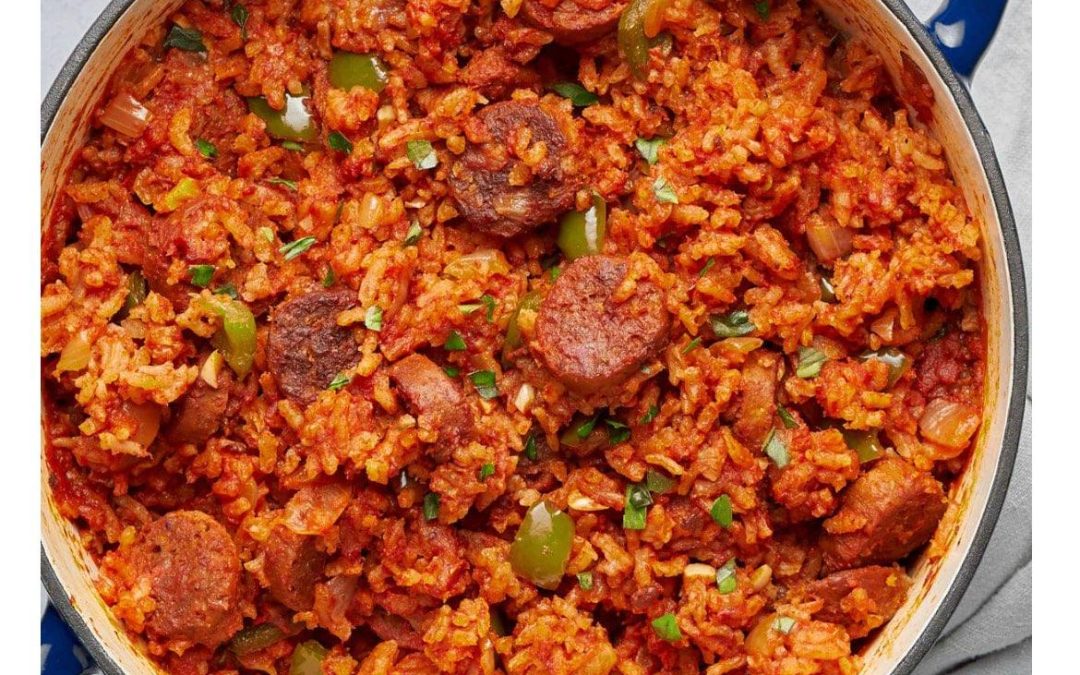WorldBeat Center’s second annual Taste of Africa event will take place on Saturday, October 21st, and it is a vibrant celebration of culture, tradition, and the flavors that connect the African diaspora to their West African roots. This year’s event promised an exciting Jollof Rice contest that showcased the culinary excellence of Liberia, Nigeria, and Ghana, along with a special treat of Gullah Geechee Red Rice from OneWorldBeat Cafe. Food, in all its richness, serves as a reflection of cultural heritage and history, telling stories of migration, adaptation, and the blending of traditions.
African Roots:
To fully grasp the connection between Gullah Geechee Red Rice and West African Jollof Rice, it’s essential to delve into the historical context of the transatlantic slave trade. This dark period in history saw millions of Africans forcibly transported to the Americas, where they endured unimaginable hardships. The forced migration of diverse West African cultures led to a mingling of traditions and culinary heritage in the New World.
Gullah Geechee Red Rice:
The Gullah Geechee people, who primarily reside in the coastal regions of South Carolina, Georgia, and Florida, are descendants of enslaved West Africans. Their culinary practices are deeply rooted in the traditions of their ancestors, and Gullah Geechee Red Rice is a powerful testament to this connection. This dish features rice cooked with tomatoes, spices, and occasionally sausage or shrimp, resulting in a flavorful and vibrant one-pot meal. The use of rice as a staple ingredient in this dish directly links to the West African rice-growing tradition that predates their enslavement.
West African Jollof Rice:
On the other side of the Atlantic, West Africa boasts a rich culinary heritage, with Jollof Rice being one of its most iconic dishes. Jollof Rice is prepared by cooking rice with tomatoes, peppers, and an array of spices, often including ingredients like thyme and scotch bonnet peppers. The dish’s popularity extends beyond West Africa, garnering international acclaim, with various countries adding their unique twists to the recipe. In many West African cultures, rice is a staple crop and an integral part of daily life, mirroring the significance of rice in the Gullah Geechee community.
Cultural Exchange and Culinary Adaptation:
Over centuries, enslaved Africans in the Americas adapted their traditional ingredients to the resources available in their new home. Tomatoes, originally native to the Americas, became integrated into their cuisine, resulting in the creation of Gullah Geechee Red Rice. This fusion of West African rice cultivation techniques and the flavors of the New World led to a dish that paid homage to their heritage while evolving into a distinct, cherished cuisine.
Shared Ingredients, Shared Stories:
The connections between Gullah Geechee Red Rice and West African Jollof Rice transcend ingredients and cooking methods. These dishes represent resilience, strength, and the ability to maintain cultural ties despite adversity. They narrate tales of adaptation, survival, and a shared history that transcends borders and time.
Gullah Geechee Red Rice and West African Jollof Rice are more than just culinary treasures; they symbolize a celebration of heritage and a testament to the enduring spirit of a people who, despite the trials of history, continue to honor their cultural legacy through the meals they prepare and share.

